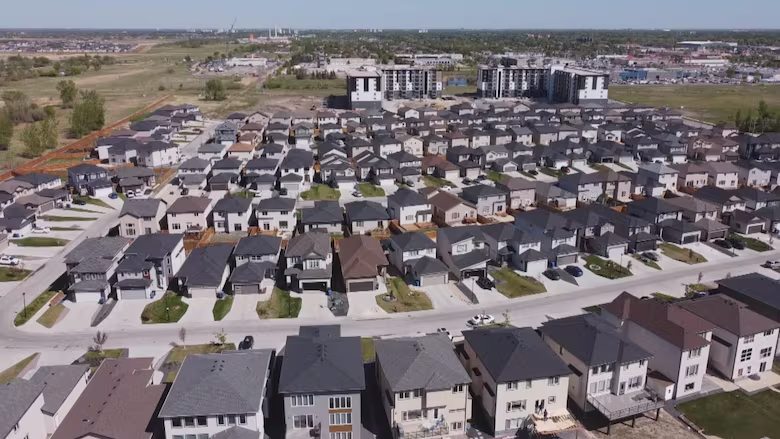Manitoba gives homeowners more time to declare primary residences after some didn't get property tax credit
Eligible homeowners in Winnipeg can apply until Nov. 25; separate bulletin for other municipalities to come

The Manitoba government is giving people more time to declare their primary residence to get up to $1,500 back on their annual property tax bill, after some homeowners didn't get a promised credit.
In a memo sent to the City of Winnipeg, the province said it will extend the time frame for principal residence owners in Winnipeg to declare their eligibility for the homeowners affordability tax credit — which reduces the education portion of their property taxes — and get the value of that credit for this tax year.
The City of Winnipeg will continue to accept additional self-declaration forms from eligible property tax owners for this year until Nov. 25, the memo said. Residential property owners should review their property tax bills to confirm whether they got the credit.
A notice to potentially affected homeowners will be sent by the city, and questions can be directed to its assessment and taxation department. A separate bulletin for all other municipalities will be issued by the province later this week, the memo said.
Finance Minister Adrien Sala said earlier this week there was a problem with some homeowners not registering their properties as their primary residence — which is a condition to get the credit — and put part of the blame on municipal governments, as the province faced questions about its property tax reforms.
"We know that some municipalities were more effective at communicating with residents than others, and in some instances, we are seeing individuals who did not register their residence as their principal residence," Sala said.
During Winnipeg's city council meeting Thursday morning, Mayor Scott Gillingham said city staff were "working closely" with the provincial government to ensure homeowners who missed the tax credit on their bills can still get the money this year.

"We're all aware the provincial government has made some significant changes to school taxes this year," Gillingham said.
City staff worked over the long weekend on the issue, he said.
"We continue to work with the province to try to help them find a solution for this."
The memo from the province said if an eligible Winnipeg homeowner submits an application and isn't on the monthly tax instalment payment plan (TIPP), a credit will be applied to their account or a cheque will be issued.
Residents on the instalment plan may get payments adjusted to incorporate the equivalent value of the tax credit, or a cheque will be issued, if the tax credit amount is greater than the current property taxes owing, the memo said.
The issue is the latest flare-up in a political battle over education property taxes. Unlike some other provinces, Manitoba has a dedicated property tax to help fund schools.
The NDP government, elected in 2023, eliminated a system implemented by the former Tory government that provided a 50 per cent rebate to residential property owners and an additional $350 credit for people's primary residence.
In its place, the NDP introduced a maximum $1,500 credit that, unlike the previous rebate, does not rise with higher property values and is not available to cottages, apartment buildings and other properties not occupied by the owner as a primary residence.
The NDP has touted the move as a tax saving for most Manitobans, because the credit can eliminate education property taxes for lower-value homes.
But overall, the government estimated it would pay out $148 million less in the initial year, and that figure would rise as annual property taxes increase.
The Tories have said it's a tax hike for a large number of people.
With files from The Canadian Press